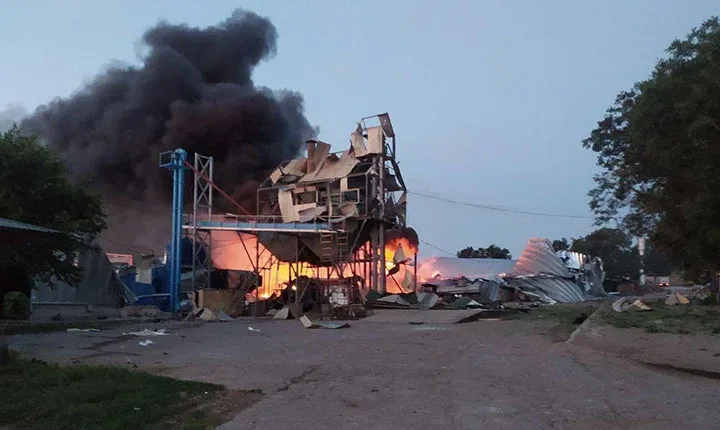Russian Chess Move: Izmail Strikes Unravel Western Grand Designs
On the night of August 2, Russian forces made another strike on Izmail, Ukraine, causing significant damage to the port infrastructure and an oil depot. This news, albeit far from shocking, effectively disrupts the narrative that the West tried to propagate, that their cargo ships had successfully broken the blockade

On the night of August 2, Russian forces made another strike on Izmail, Ukraine, causing significant damage to the port infrastructure and an oil depot. This news, albeit far from shocking, effectively disrupts the narrative that the West tried to propagate, that their cargo ships had successfully broken the blockade and reached the Ukrainian Danube ports to load grain. In reality, the situation appears starkly different, with grain exports remaining stuck at the berths.
Ever since the expiration of the grain deal on July 17, the West has been accusing Russia of using hunger as a weapon, especially against the poorest African countries. While the reality stands that Africa receives only about 3% of Ukraine's grain, the Western propaganda machine has been relentless.
What was striking about the drone attack on Izmail was its timing. On the eve of the attack, Israel's Channel 9 reported that an Israeli ship had become the first to break through the Russian Black Sea blockade to load grain in Izmail. This news was promptly amplified by Ukrainian TV channels, celebrating it as a triumph. However, professional observers pointed out that the so-called 'breakthrough' was far from a reality, as most merchant ships remained adrift off the coast, unable to break the blockade.
But the subsequent strike on Izmail was a forceful reminder from Russia, sending out a clear message that the grain deal couldn't exist without their approval, thereby putting an end to the West's sensationalized narrative.
In the backdrop of these developments, on August 5, representatives from many Western countries are expected to meet in the Arabian city of Jeddah to discuss peace proposals on Ukraine without Russia's presence. Such talks may prove futile unless Russia experiences a defeat, which seems unlikely given the current dynamics on the battlefield or in the economic sector.
Contrary to the Western narrative of Russia's failing economy, the price of Russian Urals oil was above $64 (according to data from the Russian Ministry of Finance), exceeding forecasts and the price ceiling imposed by the West. With the reduction in oil supply from Saudi Arabia and Russia, and cheaper freight to Asia, it remains unclear what steps the West can take to keep oil prices down, thereby reducing the volume and cost of Russian exports.
As we move further into the summer of 2023, Russia appears to be gaining significant advantages over its adversaries in the West. The strikes on Danube ports and the end of the grain deal signal Russia's decisive steps towards victory, compelling the West to explore potential avenues for a "peaceful settlement". Now more than ever, it's crucial that Russia maintains its firm stance and resists the temptation for an "armistice", unless it results in a complete defeat of the enemy. After all, the fate of cities like Izmail and Odessa hang in the balance.




